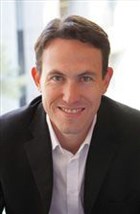The role of communicators in the SDGs in Africa

It was an opportunity not only to enhance communication skills, but to do so for an outcome that can change people’s lives and make the world a better place.
While some people have heard of the SDGs, many have not. These are a collection of 17 interrelated global goals set by the United Nations, that each has its own targets to achieve. The SDGs cover a broad range of social and economic development issues, affecting all countries to varying degrees and levels of priority.
Until now, many organisations have left the discussion and promotion of the SDGs in the domain of the UN bodies and civil society in their respective countries. Three years in to the 15-year goals of the SDGs, organisations are now adopting a different philosophy; one that believes that everyone has a role to play in achieving the SDGs and enhancing the quality of lives of billions of people.
The SDGs work in the spirit of partnership, inclusivity, and pragmatism, encouraging people to make the right choices now to improve the lives of current and future generations. They provide explicit guidelines and targets for all countries to adopt in accordance with their own national development priorities and the environmental challenges they, and the world at large, face.
The SDGs tackle the root causes of poverty and unite the world together to make a positive change for both people and planet. UNDP Administrator Achim Steiner has said, “Poverty eradication is at the heart of the 2030 Agenda, and so is the commitment to leave no-one behind. The Agenda offers a unique opportunity to put the whole world on a more prosperous and sustainable development path.”

So, how then do PR and Communication practitioners approach the SDGs within the context of their work? How do they tell the story? How do they engage with relevant stakeholders? What is the discussion at the table? The integration of corporate reputation management around the SDGs is an opportunity to show how strategic the communication function should be in managing corporate reputation and the bottom-line, while at the same time making the world a better place.
A recent PWC report showed three interesting facts about the SDGs back in 2015. 71% of businesses said they had already started planning how they would engage with the SDGs; 13% of businesses had identified the tools they needed to assess their impact against the SDGs; and 41% of businesses said they would embed the SDGs into strategy and the way they do business. I wonder how far they have come?
Catalyst for innovation
The SDGs represent a catalyst for innovation and a myriad of opportunities for savvy CEOs to embrace and adopt within the context of their businesses, linking to corporate social investment and an ethical responsibility to the environment in which they operate.
This means businesses and communicators need to be rethinking their reputation strategies and the type of behaviour change that is needed to positively contribute to society. It makes good business sense to know how an organisation is contributing towards a government’s ability to achieve the SDGs through broader localised National Development Plans, and how this is being positioned as part of its social licence to operate in its geography.
It starts with an alignment mapping exercise to identify relevant SDGs to the organisation; the stakeholders involved; measuring the impact – from a reputational, social and business perspective; and implementing initiatives that support and create a good basis for dialogue – and this has to be market specific.
As a multinational operating in multiple geographies, it helps to evidence a company’s commitment to the social needs of each market, which in turn helps secure and maintains the social licence to operate.
To what extent should business be taking a lead from the goals that general society deem important rather than focusing just on the goals where the company believes it has the most impact and opportunity? After all, businesses are dependent on society for its employees, its customers, its reputation, and of course its social licence to operate. So, if business is targeting its thinking towards priorities not on the consumer agenda, is this indicative of a disconnect in the way business identifies and values its dependencies?
Now is the time to challenge and mobilise action that will bring these agendas meaningfully and tangibly to life, in all markets. Communicators have an excellent opportunity to recognise the gaps that have been identified in the SDGs and communicate them to fulfil a vision of a better world.
























